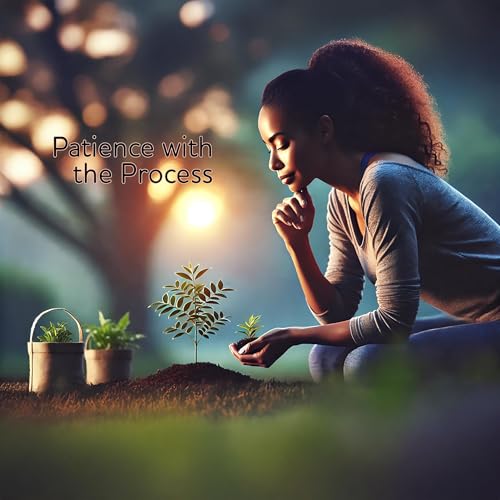Below are sample show notes designed to accompany Episode 23 of The Daily Uplift podcast. You can adapt them as needed for your website, podcast platform, or newsletter.
Episode Title
Episode 23: Embracing Consistency—The Quiet Power of Small Steps
Host
Amelia Brooks, AI Life Coach
Episode Overview
In this episode, Amelia Brooks explores why consistency is the often-overlooked key to creating lasting transformation. With the Daily Affirmation—“Today, I honor the power of consistency. Each small action I take brings me closer to my dreams”—she delves into how small, steady efforts can compound into powerful change over time. Drawing on insights from James Clear’s Atomic Habits and historical achievements like the Apollo space program, Amelia illustrates how regular, dedicated actions shape our identity and propel us forward, even when motivation is low.
Key Topics
1. Daily Affirmation
• “Today, I honor the power of consistency. Each small action I take brings me closer to my dreams.”
• How this affirmation sets the tone for daily growth.
2. Why Consistency Matters
• Quiet change vs. dramatic transformations.
• The “steady drip of water” metaphor: even minimal efforts add up over time.
3. Small Actions, Big Impact
• Examples of short daily habits (reading five pages, taking a 10-minute walk, practicing guitar for 15 minutes).
• Reference to James Clear’s concept of “habits as the compound interest of self-improvement.”
4. Showing Up When It’s Hard
• The importance of continuing even on low-energy days.
• How consistent efforts build resilience and self-discipline.
5. Trusting the Process
• Why immediate results can be misleading.
• Building strong “systems” instead of fixating on lofty goals, as suggested by James Clear.
6. Real-World Applications and Examples
• The Apollo space program’s incremental advances.
• Ancient architectural feats like the Great Pyramids, achieved through daily, collective work.
• Personal anecdotes about practicing a new skill.
7. Reflection Prompt
• Encouraging listeners to pick one small daily action and commit to it.
• “What will this step look like, and how do you envision it shaping your future?”
Episode Highlights
• Quote to Remember:
“Habits are the compound interest of self-improvement.” —James Clear
• Practical Tip:
• Start with a tiny, almost effortless step to ensure you can follow through daily.
• Mindset Reminder:
• Consistency is about persistence, not perfection.
Actionable Takeaways
1. Identify One Small Daily Habit
• Make it so easy you can’t talk yourself out of it.
• Examples: 5 pages of reading, 10 minutes of walking, or writing 1 paragraph each day.
2. Track Your Progress
• Use a simple calendar or journal to record every day you complete your habit.
• Aim to keep the “chain” unbroken.
3. Celebrate Micro-Wins
• Each time you follow through on your small habit, acknowledge it.
• Recognize that consistency builds momentum.
Related Resources
• Book Mentioned:
• Atomic Habits by James Clear
• Previous Episodes:
• Check out Episode 20 for...
 2025/01/1716 分
2025/01/1716 分 16 分
16 分 2025/01/1517 分
2025/01/1517 分 2025/01/1414 分
2025/01/1414 分 2025/01/1313 分
2025/01/1313 分 2024/12/1617 分
2024/12/1617 分 2024/12/1317 分
2024/12/1317 分 2024/12/1216 分
2024/12/1216 分